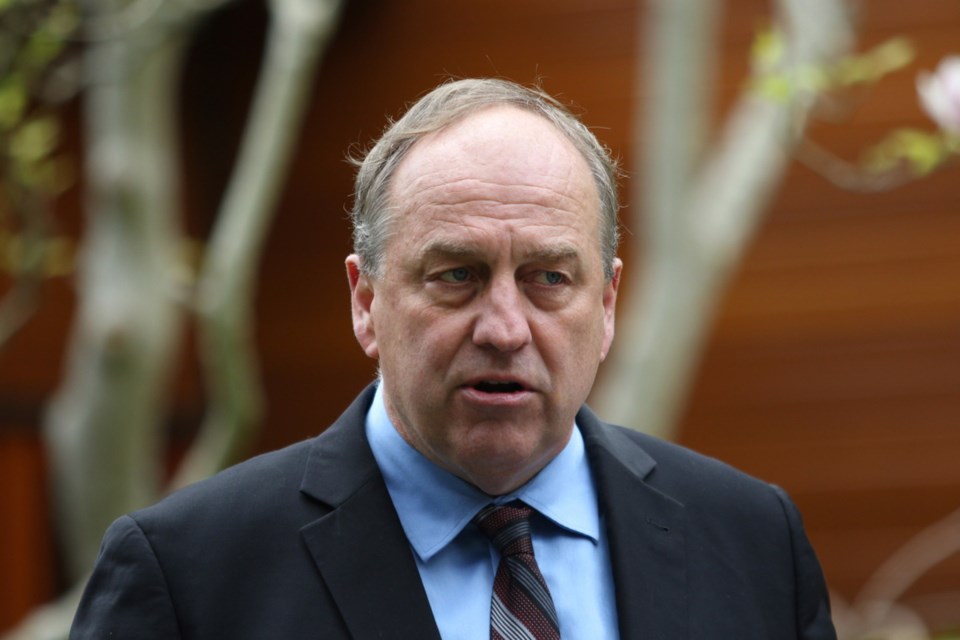Ride-sharing could come to B.C. this year, with Green Party Leader Andrew Weaver saying he will reintroduce legislation in October.
Ride-sharing firms such as like Uber and Lyft represent innovation that should be encouraged and regulated, Weaver said.
He said he has spoken with Premier John Horgan, who is “supportive” of the idea.
“You can’t be considered an innovator if you’re not willing to embrace innovation,” Weaver said.
The legislation would include an instruction to the Insurance Corp. of B.C. to create an insurance category for services provided through companies such as Uber and Lyft.
Hailing a ride-share would be prohibited. Instead, the service would be ordered digitally, such as through an app on a smartphone.
Without rules, unregulated services are emerging, he said.
Weaver introduced the Rideshare Enabling Act in April 2016 and February 2017.
As part of the last bill, a ride-share company would be required to conduct annual reviews of drivers’ records. Drivers with violent or sex crime records or convictions under the controlled drugs and substance act would be prohibited.
The B.C. Taxi Association’s main concern is public safety, said president Mohan Kang, who lives in Victoria.
He said ride-share drivers should be required to submit fingerprints, undergo police inspections and follow national safety codes that limit the number of weekly work hours for safe driving.
Kang said that the association welcomes competition, but it should be fair. “If it’s fair competition, we don’t mind. But there has to be an even playing field. You can’t say, ‘Go compete with a guy who doesn’t have any overhead.’ To ensure public safety, we have to have that kind of overhead. And our rates are not regulated by us, it is regulated by the government,” he said.
The ride-sharing industry can be problematic in terms of access and fair wages, he said. Only accepting passengers who can pay by credit card is discriminatory, he said. And while the taxi industry guarantees minimum wage, ridesharing drivers may make less.
B.C. Transportation Minister Claire Trevena’s mandate letter directed her to work with Minister of Public Safety and Solicitor General Mike Farnworth to “create a fair approach to ride-sharing.”
Although it did not include a timeline, the NDP said before the election that it supported the passing of rules to introduce ride-sharing this year.
“My ministry is well aware of the urgent need to overhaul B.C.’s regulations for taxis and passenger-directed vehicles to open the way for a ‘made in B.C.’ ride-sharing solution that meets consumers’ needs while creating a level playing field for all service providers,” Trevena said in an emailed statement.
She said she looks forward to working with Weaver and stakeholders to develop a plan that protects existing jobs and provides access to modern ride-sharing services.
The next legislative session begins Sept. 8, when the throne speech will be delivered.
“The reason we won’t do it until October is to recognize there are a lot of immediate bills that must be put in place in the legislature,” Weaver said. “But we also can’t sit back, as we try to embrace the emerging economy.”
Uber Canada spokeswoman Susie Heath said Uber was pleased to see action from the Greens. “We encourage all parties to follow through on their election commitments to work together and make ride-sharing a reality in 2017,” she said.



